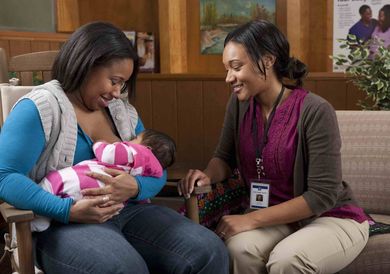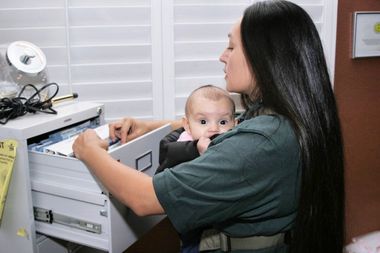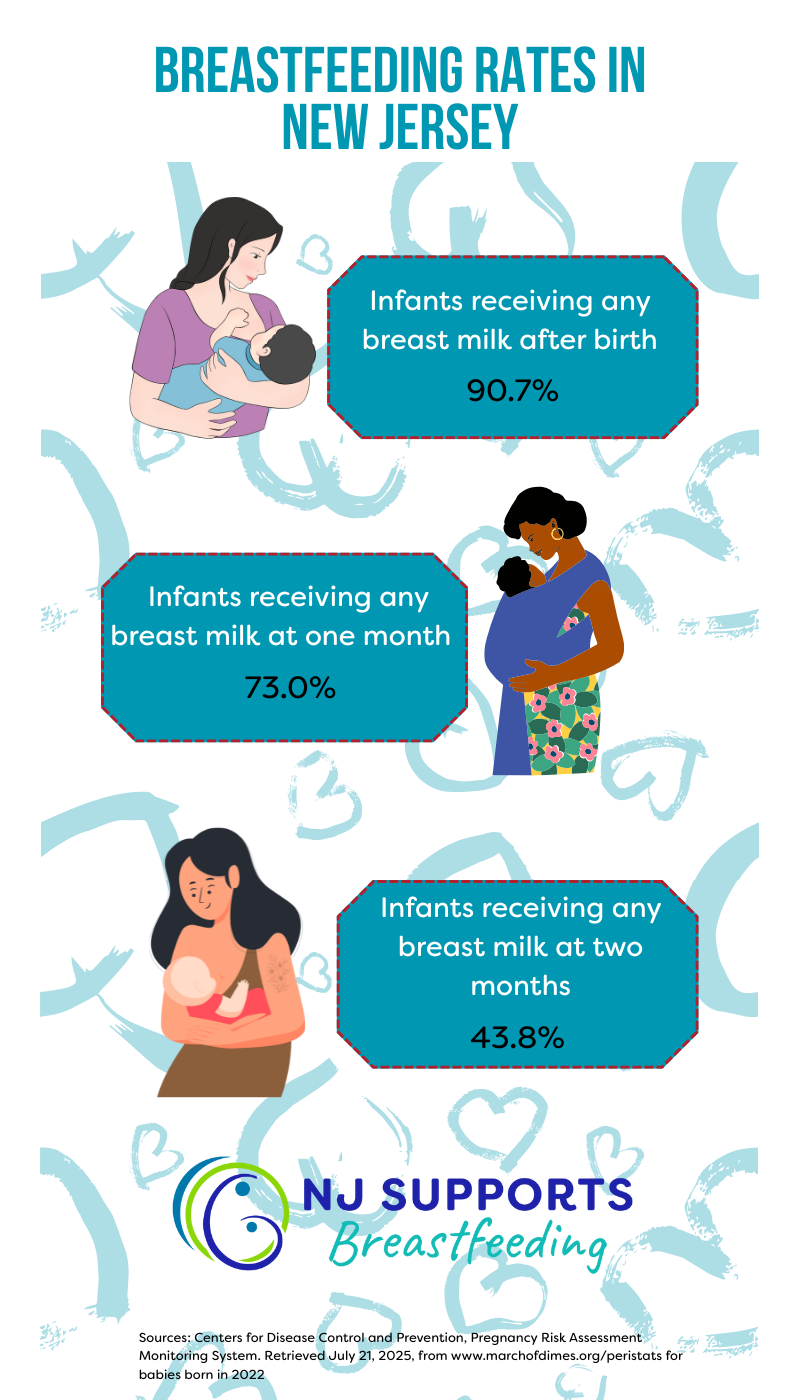Breastfeeding Is Natural, But It's Not Always Easy.
Welcome to our one-stop shop for breastfeeding and education resources! Breastfeeding is a powerful way to give your baby the healthiest start in life. Whether you’re just starting out, heading back to work, or helping others breastfeed — we’re here for you.





Breastfeeding is a Journey
These videos capture real stories from breastfeeding parents on the highs and lows of feeding their babies. From the preparation or lack of preparation for breastfeeding to the advice they have for new parents starting out after figuring out how to make it work, these videos will give you a great glimpse into how breastfeeding is worth the effort.

This graphic shows that a high number of babies receive breast milk soon after birth. However, fewer are fed human milk by one month of age, and less than half of all babies are receiving human milk at two months.
Parents report that numerous barriers prevent them from meeting their breastfeeding goals. Improved breast information, access to skilled lactation support, and workplace accommodations can help improve breastfeeding continuation rates.
Supporting breastfeeding is also vital to addressing New Jersey's racial and ethnic disparities in maternal and infant health and mortality. A Black mother in New Jersey is almost seven times more likely than a White mother to die from maternity-related complications, and a Black baby is over three times more likely than a White baby to die before their first birthday. Hispanic mothers are 3.5 times more likely compared with White mothers and Hispanic babies are 1.6 times more likely to die.
Breastfeeding helps reduce infant and maternal mortality. Therefore, supporting breastfeeding will lead to better health outcomes and health equity in New Jersey.

